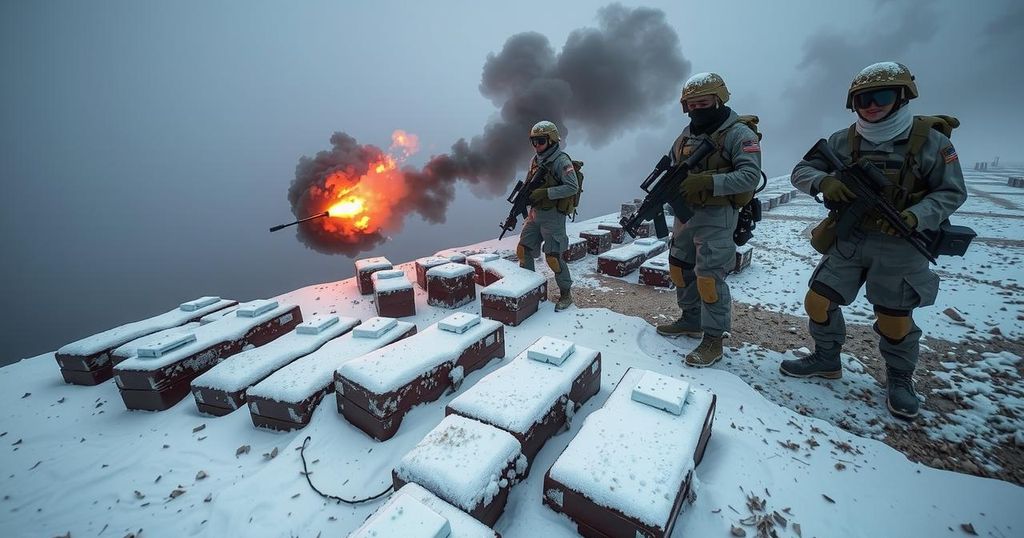The cease-fire in Manbij, northern Syria, between Kurdish and Turkish-backed forces has been extended amidst ongoing U.S. efforts to mediate a lasting resolution. The truce follows a history of conflict in the region, exacerbated by the territorial ambitions of ISIS and the complexities of U.S.-Turkey-Kurd relations. Discussions are underway regarding the establishment of a demilitarized zone to ease tensions, although the situation remains precarious.
The cease-fire between Kurdish forces and Turkish-backed fighters in the pivotal city of Manbij, northern Syria, has been extended for several more days, according to a U.S. official. Matthew Miller, a spokesman for the State Department, announced that this pause in hostilities would persist until the end of the week, emphasizing the need for de-escalation in a region that has long been a center of conflict. Manbij, an Arab-majority city situated close to the Turkish border, has seen a history of clashes, particularly as factions vie for control amid the remnants of the civil war and the threat of the Islamic State.
The initial cease-fire agreement was forged with U.S. mediation on December 10, necessitating the withdrawal of the Syrian Democratic Forces (SDF) from Manbij and their repositioning to the eastern bank of the Euphrates River. This river has historically served as a demarcation line between the Kurdish forces and their Turkish-backed opponents. Although Kurdish-led forces have proven to be crucial allies for the United States in combating ISIS, Turkey views their presence as a direct threat due to their perceived affiliations with the PKK (Kurdistan Workers’ Party), which is classified as a terrorist organization by both Turkey and the United States.
To foster improved relations, Kurdish military commanders have suggested the establishment of a demilitarized zone in Kobani, under U.S. supervision. Gen. Mazloum Abdi conveyed that this initiative is intended to alleviate Turkish security concerns and promote regional stability. However, it remains uncertain how the Biden administration will approach this complex situation, especially considering the prior stances of President Donald J. Trump regarding U.S. military presence in Syria.
Miller indicated that discussions with Turkey concerning issues in Kobani and northern Syria are ongoing, albeit fraught with challenges. Long-standing tensions between Turkey and Kurdish groups necessitate careful navigation to achieve a sustainable resolution.
The persistence of conflicts in northern Syria has repercussions not only for regional stability but also for the strategic interests of U.S. forces stationed in the area, primarily focused on countering the resurgence of ISIS.
In conclusion, the extended cease-fire in Manbij underscores the fragile balance of power in northern Syria, complicated by historical grievances and international interests. The situation remains delicate, and U.S. officials are actively seeking viable paths to reduce hostilities and stabilize the region, aiming for a resolution that addresses both Kurdish and Turkish concerns.
The conflict in northern Syria, particularly in Manbij, has been a focal point of contention between Kurdish forces and Turkey’s proxy fighters. Historically, the city was under ISIS control before the Kurdish-led Syrian Democratic Forces liberated it in 2016 with U.S. support. Since then, control over Manbij has become a strategic goal for various factions, including the Syrian National Army, which is backed by Turkey. Tensions between Turkish forces and Kurdish groups are intensified by Turkey’s long-standing view of the PKK, which operates on its southern border, as a terrorist organization. The involvement of U.S. troops adds another layer of complexity, as they aim to prevent the resurgence of ISIS while navigating the intricate local dynamics and international relations.
The cease-fire extended in Manbij represents a crucial step towards denoting a temporary halt in a longstanding conflict, yet the underlying tensions between Kurdish forces and Turkey remain unresolved. U.S. involvement is pivotal in fostering dialogue and potential agreements that could lead to broader stability in the region. The situation necessitates careful diplomacy and sustained engagement to address the security concerns of Turkey while maintaining support for Kurdish groups that have effectively countered ISIS. The coming days and weeks will be critical in shaping the future dynamics in northern Syria and the broader implications for U.S. foreign policy in the region.
Original Source: www.nytimes.com







